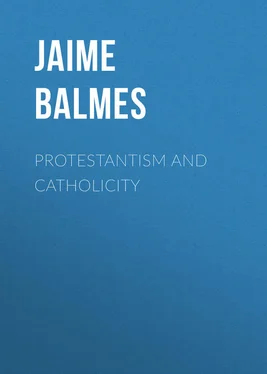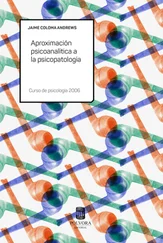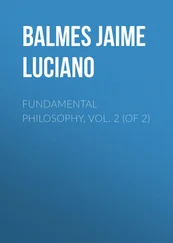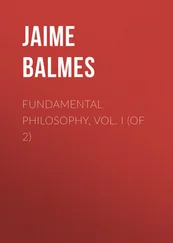Jaime Balmes - Protestantism and Catholicity
Здесь есть возможность читать онлайн «Jaime Balmes - Protestantism and Catholicity» — ознакомительный отрывок электронной книги совершенно бесплатно, а после прочтения отрывка купить полную версию. В некоторых случаях можно слушать аудио, скачать через торрент в формате fb2 и присутствует краткое содержание. Жанр: foreign_antique, foreign_prose, на английском языке. Описание произведения, (предисловие) а так же отзывы посетителей доступны на портале библиотеки ЛибКат.
- Название:Protestantism and Catholicity
- Автор:
- Жанр:
- Год:неизвестен
- ISBN:нет данных
- Рейтинг книги:3 / 5. Голосов: 1
-
Избранное:Добавить в избранное
- Отзывы:
-
Ваша оценка:
- 60
- 1
- 2
- 3
- 4
- 5
Protestantism and Catholicity: краткое содержание, описание и аннотация
Предлагаем к чтению аннотацию, описание, краткое содержание или предисловие (зависит от того, что написал сам автор книги «Protestantism and Catholicity»). Если вы не нашли необходимую информацию о книге — напишите в комментариях, мы постараемся отыскать её.
Protestantism and Catholicity — читать онлайн ознакомительный отрывок
Ниже представлен текст книги, разбитый по страницам. Система сохранения места последней прочитанной страницы, позволяет с удобством читать онлайн бесплатно книгу «Protestantism and Catholicity», без необходимости каждый раз заново искать на чём Вы остановились. Поставьте закладку, и сможете в любой момент перейти на страницу, на которой закончили чтение.
Интервал:
Закладка:
The periods of revolutions, that is to say, those stormy times when governments are swallowed up one after another like edifices built upon a volcanic soil, have all this distinctive character, the tyranny of the interests of public authority over private interests . Never is this power feebler, or less lasting; but never is it more violent, more mad. Every thing is sacrificed to its safety or its vengeance; the shade of its enemies pursues it and makes it continually tremble; its own conscience torments it and leaves it no repose; the weakness of its organization, its instable position, warn it at every step of its approaching fall, and in its impotent despair it makes the convulsive efforts of one dying in agony. What, then, in its eyes are the lives of citizens, if they excite the slightest, the most remote suspicion? If the blood of thousands of victims could procure for it a moment of security, and add a few days to its existence, "Perish my enemies," it says; "this is required for the safety of the state, that is, for mine!" Why this frenzy, this cruelty? It is because the ancient government, having been overturned by force, and the new having been enthroned in the same way, the idea of right has disappeared from the sphere of power. Legitimacy does not protect it, even its novelty betrays its little value; every thing forebodes its short existence. Stripped of the reason and justice which it is obliged to invoke in its own support, it seeks for both in the very necessity of power , a social necessity, which is always visible, and it proclaims that the safety of the people is the supreme care. Then the property and lives of individuals are nothing; they are annihilated in the presence of the bloody spectre which arises in the midst of society; armed with force, and surrounded by guards and scaffolds, it says, "I am the public power; to me is confided the safety of the people; it is I who watch over the interests of society."
Now, do you know what is the result of this absolute want of respect for the individual, of this complete annihilation of man in presence of the alarming power which claims to represent society? It is that the feeling of association reappears in different directions; no longer a feeling directed by reason, foresight, and beneficence, but a blind, instinctive feeling, which urges man not to remain alone, without defence, in the midst of a society which is converted into a field of battle and a vast conspiracy; men then unite either to sustain power, when, influenced by the whirlwind of revolution, they are identified with it, and regard it as their only rampart, or to overturn it, if, some motive having urged them into the opposite ranks, they see their most terrible enemy in the existing power, and a sword continually suspended over their heads. These men belong to an association, are devoted to an association, are ready to sacrifice themselves for it, for they cannot live alone; they know, they comprehend, at least instinctively, that the individual is nothing; for as the restraints that maintain social order have been broken, the individual no longer has a tranquil sphere where he can live in peace and independence, confident that a power founded on legitimacy and guided by reason and justice watches over the preservation of public order and the respect due to individual rights. Then timid men are alarmed and humbled, and begin to represent that first scene of servitude where the oppressed is seen to kiss the hand of the oppressor, and the victim to reverence the executioner. Daring men resist and contend, or rather, conspiring in the dark, they prepare terrible explosions. No one then belongs to himself; the individual is absorbed on all sides, either by the force which oppresses or by that which conspires. The tutelary divinity of individuals is justice; when justice vanishes, they are no more than imperceptible grains of dust carried away by the wind, or drops of water in the stormy waves of ocean. Imagine to yourself societies where this passing frenzy does not prevail, it is true, but which are yet devoid of true ideas on the rights and duties of individuals, and of those of public authority; societies where there are some wandering, uncertain, obscure, imperfect notions thereon, stifled by a thousand prejudices and errors; societies under which, nevertheless, public authority is organized under one form or another, and has become consolidated, thanks to the force of habit, and the absence of all other government better calculated to satisfy urgent necessities; you will then have an idea of the ancient societies, we should rather say, societies without Christianity, and you will understand the annihilation of the individual before the force of public power, either under an Asiatic despotism or the turbulent democracy of the ancient republics. And what you will then see will be precisely what you have observed in modern societies at times of revolution, only with this difference, that in these the evil is transitory and noisy, like the ravages of the tempest, while among the ancients it was the normal state, like the vitiated atmosphere which injures and corrupts all that breathe it.
Let us examine the cause of these two opposite phenomena, the lofty patriotism of the Greeks and Romans, and the state of prostration and political degradation in which other nations lay, and in which those still lie who are not under the influence of Christianity; what is the cause of this individual abnegation which is found at the bottom of two feelings so contrary? and why do we not find among any of those nations that individual development which is observed in Europe, and which with us is connected with a reasonable patriotism, from which the feeling of a legitimate personal independence is not excluded? It is because in antiquity man did not know himself, or what he was; it is because his true relations with society were viewed through a thousand prejudices and errors, and consequently were very ill understood. This will show that admiration for the patriotism, disinterestedness, and heroic self-denial of the ancients has been sometimes carried too far, and that these qualities, far from revealing in the men of antiquity a greater perfection of the individual, a superior elevation of mind to that of the men of modern times, rather indicate ideas less elevated and feelings less independent than our own. Perhaps some blind admirers of the ancients will be astonished at these assertions. Let them consider the women of India throwing themselves on the funeral-pile after the death of their husbands, and slaves putting themselves to death because they could not survive their masters, and they will see that personal self-denial is not an infallible sign of elevation of mind. Sometimes man does not understand his own dignity; he considers himself devoted to another being, absorbed by him, and then he regards his own existence only as a secondary thing, which has no object but to minister to the existence of another. We do not wish to underrate the merit which rightly belongs to the ancients; we do not wish to lower their heroism, as far as it is just and laudable, any more than we wish to attribute to the moderns an egotistical individuality, which prevents their sacrificing themselves for their country: our only object is to assign to every thing its place, by dissipating prejudices which are excusable up to a certain point, but do lamentable mischief by falsifying the principal features of ancient and modern history.
This annihilation of the individual among the ancients arose also from the weakness and imperfection of his moral development, and from his want of a rule for his own guidance, which compelled society to interfere in all that concerned him, as if public reason was called upon to supply the defect of private reason. If we pay attention, we shall observe that in countries where political liberty was the most cherished, civil liberty was almost unknown. While the citizens flattered themselves that they were very free, because they took part in the public deliberations, they wanted that liberty which is most important to man, that which we now call civil liberty. We may form an idea of the thoughts and manners of the ancients on this point, by reading one of their most celebrated writers, Aristotle. In the eyes of this philosopher, the only title which renders a man worthy of the name of citizen, seems to be the participation in the government of the republic; and these ideas, apparently very democratic and calculated to extend the rights of the most numerous class, far from proceeding, as one would suppose, from an exaggeration of the dignity of man, was connected in his mind with a profound contempt for man himself. His system was to reserve all honor and consideration for a very limited number; the classes of citizens who were thus condemned to degradation and nullity were all laborers, artisans, and tradesmen. ( Pol. l. vii. c. 9, 12; l. viii. c. 1, 2; l. iii. c. 1.) This theory supposed, as may be seen, very curious ideas on individuals and society, and is an additional confirmation of what I have said respecting the eccentricities, not to say monstrosities, which we see in the ancient republics. Let us never forget that one of the principal causes of the evil was the want of an intimate knowledge of man; it was the little value which was placed upon his dignity as man; the individual, deprived of guides to direct him, could not conciliate esteem; in a word, there was wanting the light of Christianity, which was alone capable of illuminating the chaos.
Читать дальшеИнтервал:
Закладка:
Похожие книги на «Protestantism and Catholicity»
Представляем Вашему вниманию похожие книги на «Protestantism and Catholicity» списком для выбора. Мы отобрали схожую по названию и смыслу литературу в надежде предоставить читателям больше вариантов отыскать новые, интересные, ещё непрочитанные произведения.
Обсуждение, отзывы о книге «Protestantism and Catholicity» и просто собственные мнения читателей. Оставьте ваши комментарии, напишите, что Вы думаете о произведении, его смысле или главных героях. Укажите что конкретно понравилось, а что нет, и почему Вы так считаете.












